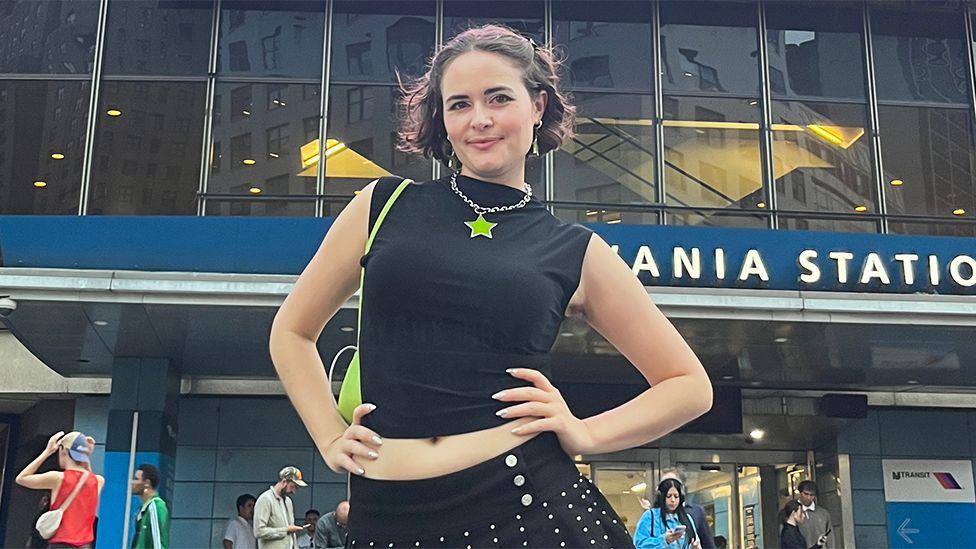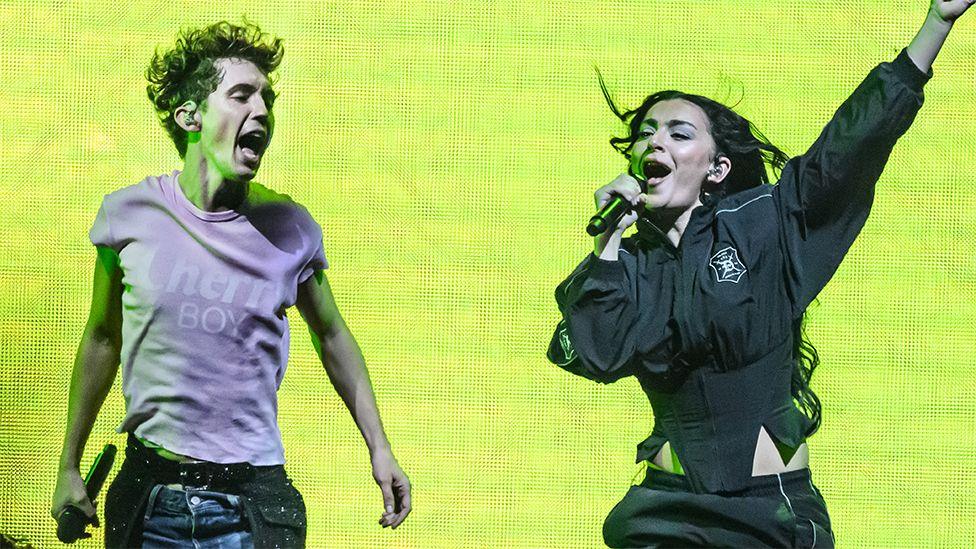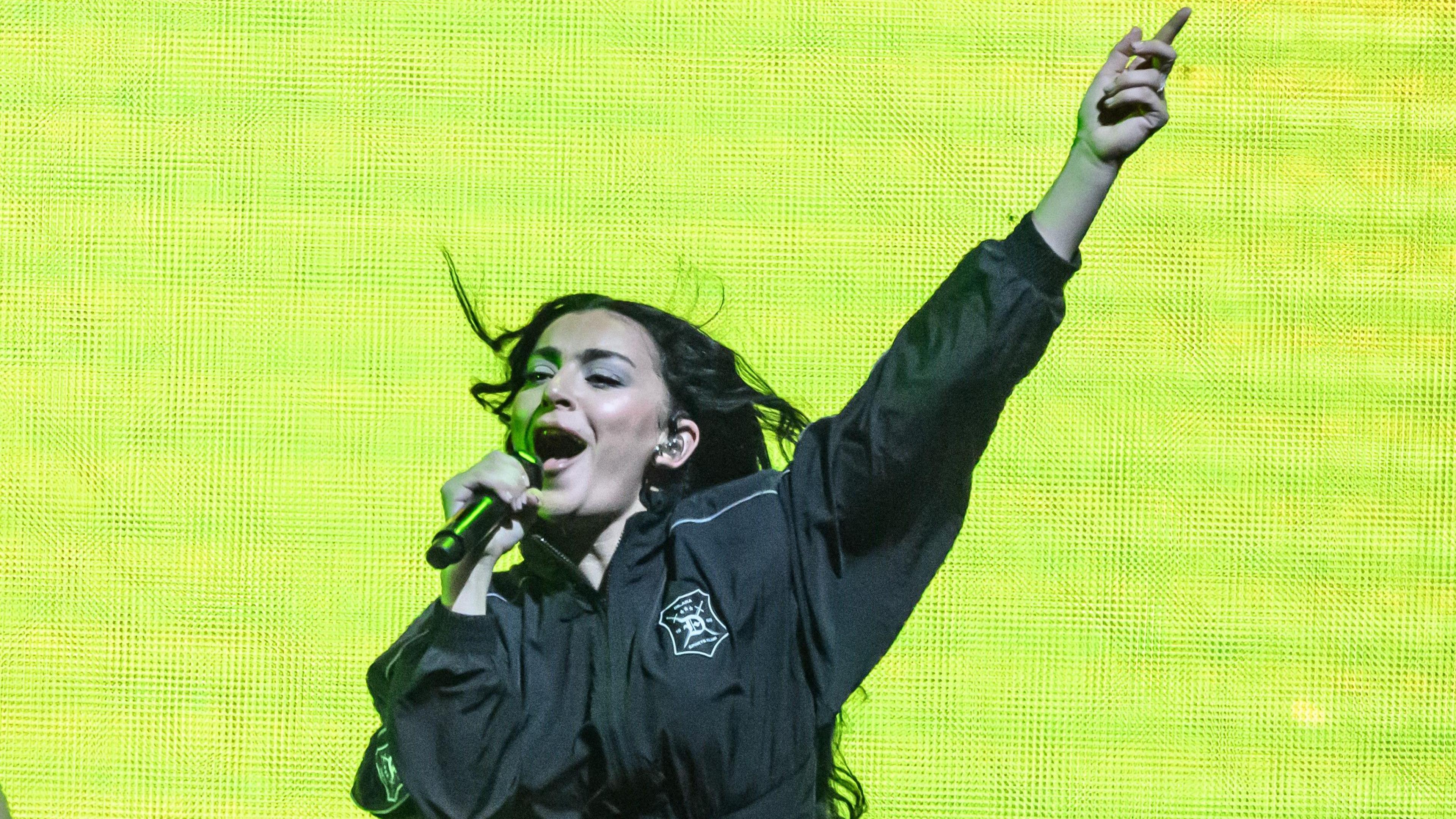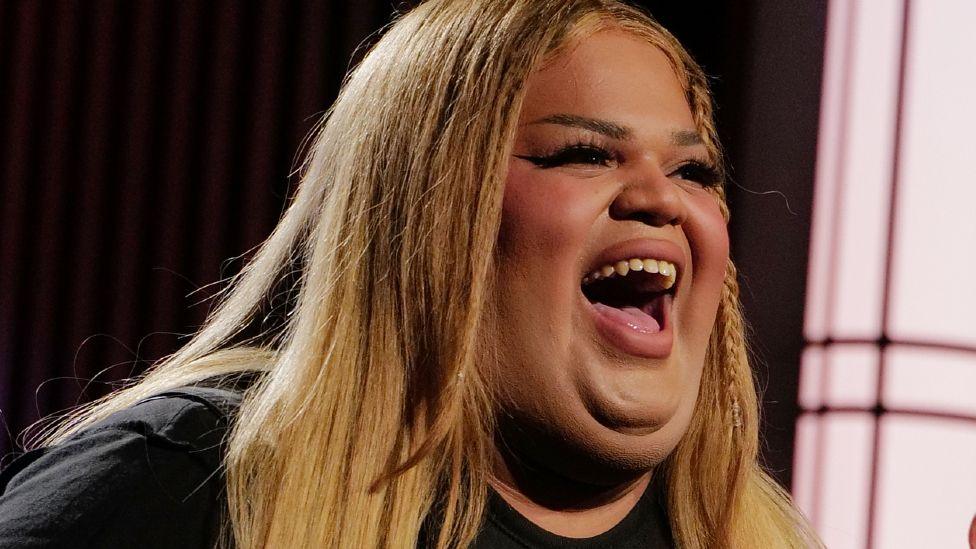Tearing other women down isn't brat, says Apple dance creator

Kelley Heyer (pictured outside Madison Square Gardens) created the viral Apple dance
- Published
The creator of the TikTok Apple dance says people who've trolled a woman who gatecrashed her big moment at a Charli XCX gig aren't embodying the spirit of "brat summer".
Kelley Heyer was invited by the singer to appear on Apple Cam at the New York leg of her Sweat tour - where a fan is shown performing the dance on big screens.
But a fellow concert-goer who shimmied into the shot has been targeted by a string of negative comments online about her behaviour and appearance after Kelley posted a video of the moment.
"I feel really bad for her because she's being treated really unfairly by the internet," Kelley tells BBC Newsbeat.
"I didn’t want to be someone who tears down this girl for something that was a mistake," Kelley says, adding she feels "responsible for giving exposure".
Named after Charli XCX’s album, brat has been a cultural phenomenon, inspiring millions of posts including dance videos with arms going up, down and side to side in sync to the lyrics of Apple.
The other woman contacted Kelley and apologised, but there's no hard feelings.
"She and I are cool, and everyone else wants to be a hater," says Kelley.
"Tearing other women down [and] being fatphobic, that’s not brat."
She thinks a lot of the hate comes from "people outside of the community who didn’t participate in brat summer being mean".
"Brat is community and you support your community."
Credit for Apple’s success?
The song has so far been streamed over 172 million times on Spotify and peaked at number eight in the Official UK Singles Chart.
Much of its success has been attributed to the viral dance moves created by Kelley, who fittingly lives in the Big Apple.
She reveals the dance was inspired by what she felt was a lack of appreciation initially for Apple.
"Maybe people were kind of sleeping on it."
Kelley, who is an actor, started using TikTok during the Covid pandemic but had never made a dance before.
"I thought wouldn't it be so funny if I made my first ever one to this unappreciated Charli XCX song."

Troye Sivan and Charli XCX are currently touring together
Kelley wonders if she deserves at least some credit for Apple’s wider success.
"I'm hesitant to say that because ultimately, I wouldn't even have the dance if Charli wasn't such a phenomenal artist and performer.
"So I do take some credit, but I also want to be humble and acknowledge that it is still Charli's song and her amazing music."
She’s been surprised at the length of the trend’s success.
"Every time I thought the dance couldn't reach another peak, it got another wave of virality.
"Trends do die off eventually. This one will taper and die off eventually, but all summer just kept going. And I was just so awed by that."
Despite the massive success of the moves, she does have some regrets around the commercial side of things, having made the dance for free.
"When I see people who use TikTok do the dance, that's fine and wonderful.
"But sometimes I see large brands or huge creators and they use the dance and don't credit me or shout me out any kind of way.
"And that sort of bums me out a little bit.
"That could have been a really good opportunity, really good exposure for me," she says.
Allow TikTok content?
This article contains content provided by TikTok. We ask for your permission before anything is loaded, as they may be using cookies and other technologies. You may want to read TikTok’s cookie policy, external and privacy policy, external before accepting. To view this content choose ‘accept and continue’.
There are some opportunities now though for Kelley, who was born in Hawaii before moving to New York.
"In my emails, I get record labels and artists asking me to make dances for them.
"Most of the time I turn them down because a lot of people don't understand the time it takes to make something go viral.
"I posted Apple every day for two weeks before it went viral and even started to gain traction," she says.
Despite being offered money by these labels, she says it’s important to understand why, in her view, Apple succeeded.
"Apple really worked because I wasn't being paid to do it. Authenticity is really easy to spot by people.
"We're inundated by fake authenticity and sponsored content and stuff like that.
"So I think people are really searching for true authenticity," she says.

Related topics
Read more
- Published22 July 2024

- Published2 August 2024

- Published25 August 2024
